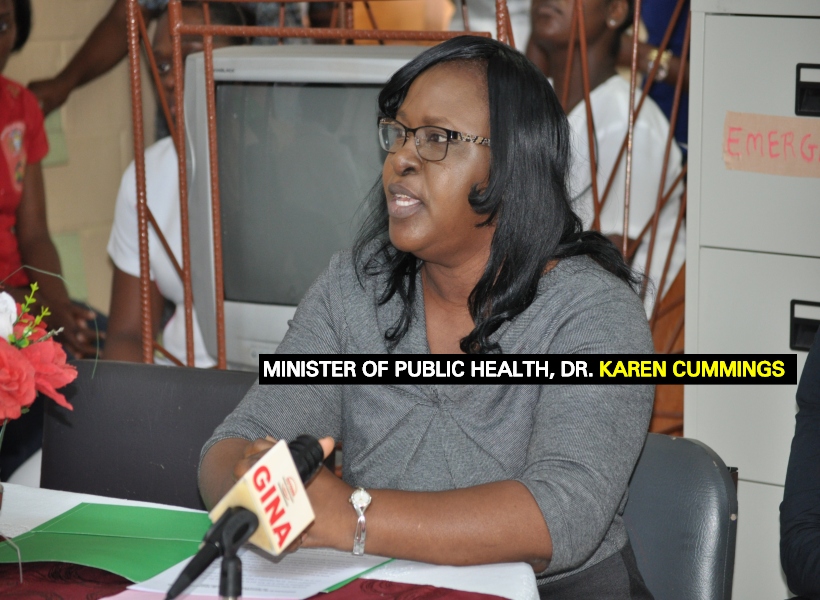The increasing number of cancer cases in Guyana has been linked, in no uncertain terms, to the influx of fast food outlets, coupled with the lack of exercise, the use of tobacco and alcohol, and irresponsible sexual behaviour.
This nexus was made earlier today by Minister within the Ministry of Public Health, Dr. Karen Cummings, as she addressed a forum in the Ministry’s Brickdam, Georgetown compound to mark the start of breast cancer awareness month. Breast Cancer Awareness Month is observed every October across the globe.
But although the focus is on breast cancer for the entire month, Minister Cummings noted that Guyana will be giving attention to all other cancers as well. Even as she shed light on the known causative factors leading to the rise in cancer cases, the Minister did assured that “these are all avoidable causes.”
The Minister disclosed that among the most troubling types of cancers that persons need to guard against are breast and cervical. But there are other parts of the body where cancers have been increasingly finding themselves. “Other sites include the uterus, colon, rectum and the stomach. While the percentage increases at different levels for the different sites, each place in the body where cancer occurs must be treated with an equal degree of importance,” said
Minister Cummings.
Early screening and by extension detection are touted as important measures to allow early treatment to combat the climbing toll of cancer. But Minister Cummings noted that here in Guyana there are some limitations when it comes to screening and treatment for cancer. She, however, asserted that “this does not necessarily explain the rise in the tolls.” But according to the Public Health Minister deliberate efforts are being made by government to explore and
implement numerous activities that will seek to curb the cancer epidemic.
These will include appropriate staffing of the Chronic Non-Communicable Disease Unit, within the Ministry, allotment of adequate budgetary resources, training of health care professionals in the area of oncology, public private partnerships with non-governmental and non-profit organisations, research and surveys, establishment of an Oncology Unit at the GPHC and robust screening and preventative methods available free of cost. The free preventative methods will include VIA tests, HPV and Hepatitis B vaccines, HPV serological testing and radiological
services.













